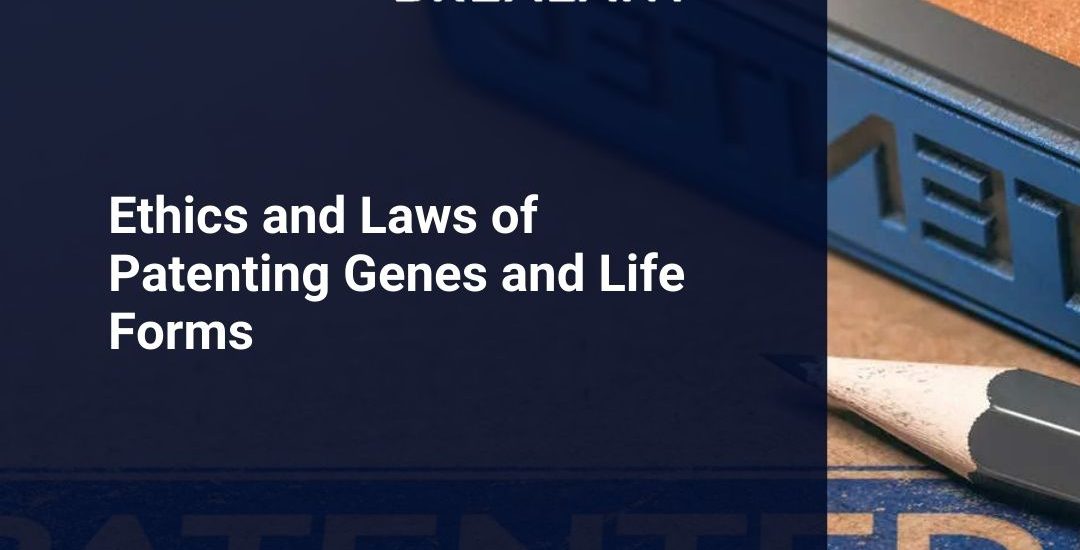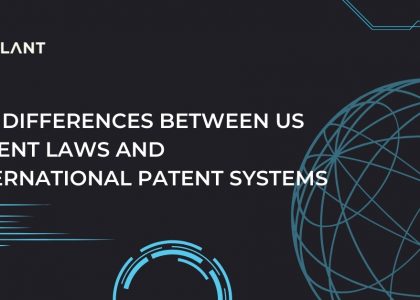A patent refers to the legal rights provided by the USPTO to an inventor for his invention, which prevents anyone else from modifying or selling without his permission. We all know that the most common types of patents are utility, design, and plant, and the validity of the patents varies according to the type of patent.
However, with the advent of technology, we speak about one more patent, Gene patenting. So many views and objections exist to the term ‘Gene patenting.’ Various ethical concerns and legal implications are associated with patenting genes and life forms. In this article, we will learn about the ethical and legal complications associated with gene patenting.
Gene Patenting- An Overview
Gene patenting is the process of providing rights to an organization or an individual over a gene or DNA sequence. The government provides this patent to the organization or person who discovers, invents, or alters a gene sequence. Like utility patents, gene patents also have a validity of up to 20 years. One of the well-known examples of gene patenting is the predisposition genes such as BRCA1 and BRCA2 (breast and ovarian cancer).
Human beings and other living beings are natural creations. Every human being has an identity and doesn’t come under the category of property like patentable goods and services. Patenting genes and genetically created organisms (such as cloning) are one of the topics discussed nowadays. And people believe that manipulating the gene structure of living organisms or patenting them is against ethics. Let us learn more about the ethical issues of gene patenting.
Ethical Issues Associated with the Gene Patenting
Biotechnology is one of the drastically improving technologies that create innovations in biodiversity. We all agree that the field of biotechnology and genetic engineering have brought so many benefits to the lives of living beings by inventing new medicines and eradicating diseases. Through biotechnology, various advancements have been made in the field of agriculture by creating new varieties of plants and seeds. However, modifying the gene structure of living beings is believed to be against nature. Patenting life forms may seem unethical because no one can take the rights of nature’s creations.
Some of the other technologies, such as cloning, result in altering the gene structure of human beings and may create a potential threat to nature and the life of living beings. Also, one cannot obtain a patent on something common to everyone, like genetic structure or material. This is why patenting human genes or human cloning is prohibited. The idea of patenting and modifying the gene structure of living beings and using them for commercial and marketing purposes is feared to create environmental changes. Let us examine the legal issues that are related to the patenting of genes and genetically created organisms.
Legal Issues Associated with Gene Patenting
According to the US Constitution, patenting of human beings was prohibited. As discussed above, patenting life forms and transgenic beings is against ethical and moral values, and that’s why it was prohibited legally till 1980. Apart from this, if someone obtains a patent for a specific gene, it prevents any other party from conducting research and making any observations.
Since only one person or a single party has the exclusive right to conduct research on the particular gene, it confines the research process to that party, and no other party can research them for a useful purpose. It may also delay the process of finding cures and treatments for diseases as the research is limited to a particular organization. If someone else tries to observe anything from any of the patented genes, it may result in patent infringement. This limited access to health-related processes will also be against ethics and will not benefit the lives of living beings.
To Sum Up
There are a lot of concerns that arise when we talk about patenting genes and life forms. Patenting genes have both merits and demerits. An organization obtaining a gene patent should adhere to the laws and regulations associated with gene patenting in order to benefit something to living beings. At the same time, patenting of genes and life forms has so many violations of ethical values and is believed to be against nature. Though the US has now agreed to patents of man-made beings and creations, ethical values should always be preserved while patenting genes and life forms.
Choose us for your patent guidance and make your process smooth!
Are you someone who is looking forward to registering a patent to protect the invention you are currently working on? Brealant is a great choice for you! Contact Brealant now to guide you through the entire patent registration process and clarify all your queries related to patent registration!
Disclaimer-Brealant provides access to independent attorneys and self-service tools, is not a law firm, and does not provide legal advice.





